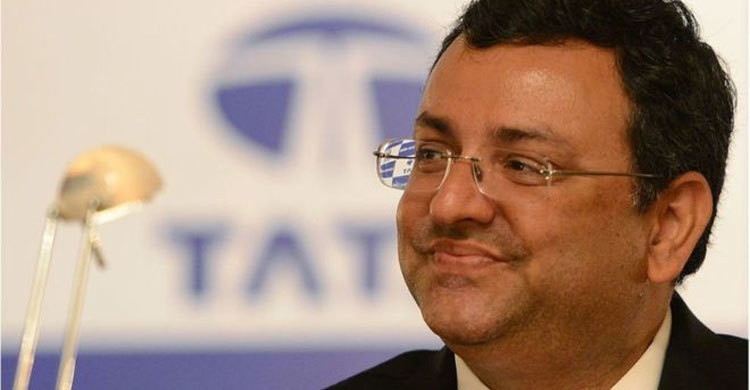India puzzled by ‘sacking’ of Tata boss Cyrus Mistry

The replacement at the helm of India`s largest conglomerate has come as both a shock and a surprise.
Tata Sons, the holding company of Tata Group, in a sudden move on Monday, unexpectedly replaced chairman Cyrus Mistry with his predecessor Ratan Tata,
The change is made even more puzzling by the company giving no explanation or details about its decision.
The country’s media, though, is filled with speculation about the decision and what the future might hold for Tata.
‘Clash of cultures’
The first question on everyone’s mind was ‘Why?’ Cyrus Misty had been hand-picked as a successor to Ratan Tata in 2012, as the second chairman from outside the Tata family and with high hopes that he would be the right man to steer the company.
He was the sixth chairman in Tata`s 148-year history and the first chairman in nearly 80 years to come from outside the Tata family.
The Economic Times writes the move was over ‘performance issues,’ citing allegations that Tata was not happy with Mr Mistry’s ‘approach of shedding non-profit businesses, including the conglomerate’s steel business in Europe, and concentrating only on cash cows’.
The paper also notes that there was a ‘fundamental disconnect between [Mr] Mistry and Tata, particularly with regard to ethos, values, vision and the direction’ the group was taking.
Mr Mistry’s explicit disregard for the ‘old guard’ in the company was ‘considered overtly aggressive and unnecessary,’ according to the paper.
Business publication Mint also speaks of ‘contrasting styles in investment’, saying the approach of Mr Mistry ‘was in sharp contrast with that of his predecessor Ratan Tata’, under whom the group was ‘one of India`s most aggressive acquirers, especially of overseas assets’.
During his time as chairman since 2012, Mr Mistry though seemed to move into the opposite direction, getting rid of loss-making units and focusing on the stronger core businesses. The plans to sell the British steel plants owned by Tata are part of this trend.
The Business Standard says that people in the know were aware the conflict ‘was building up’. The paper cites a number of recent incidents where Tata felt not properly informed by Mr Mistry about his business decision.
But the paper cites sources from close to the Tata board saying that the ‘real issue was that Tata felt [Mr] Mistry may not be the best bet in the long-term’ with no vision for the future.
Replaced? Sacked? Ousted? Officially, Cyrus Mistry was ‘replaced’, seen by many publications as a decidedly vague term, especially given the context that there were next to no further details or explanations.
The change at the top is widely seen as the chairman getting the boot. For the Economic Times, the case is an ‘ouster,’ described as ‘worse than any scene from corporate fiction in which the CEO is given the pink slip at the shortest possible notice’.
The article also points out that the sudden decision ‘is most unusual and not in keeping with the reputation of good corporate governance that the Tatas had earned over the past decades’.
The paper cites an unnamed ‘old Tata hand’ describing the situation as ‘a coup that was planned to perfection and executed to the tee’.
The Business Standard points out that Cyrus Mistry’s ‘stint as chairman’ was the shortest ever at Tata, while Mint adds that he ‘wasn’t even given the option of resignation’.
The Times of India describes the ‘replacement’ bluntly as a ‘sacking’, suggesting in fact that Mr Mistry is ‘likely to move to the Bombay high court’ to challenge the board’s ‘decision to dismiss him’.
Source: BBC


